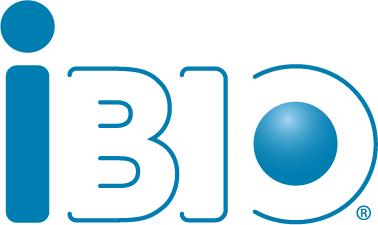The March 12 edition of iBIO News Briefhighlighted the new Innovation and Research Park on the Rosalind Franklin University (RFU) campus in North Chicago. (Click hereto read “A Next-Generation Facility: Transforming World-Class Research Into Impactful Innovations.”) With the addition of 100,000 square feet of laboratory and office space, RFU will address a significant hurdle that the Chicago Metro area must overcome if we are to rise higher in the Top 10 rankings of U.S. life sciences clusters.
iBIO News Briefcontributor Jed Weiner recently interviewed Dr. Ronald Kaplan, PhD, a leader of RFU’s Innovation and Research Park (IRP), about the university’s mission: “facilitate partnership and accelerate the development of game-changing interventions.” Below are brief excerpts from their conversation.
Ron, why did Rosalind Franklin University decide to address the needs of our regional life sciences community through the development of the Innovation and Research Park (IRP)?
My colleagues and I recognize that improving health through scientific discovery is at the heart of RFU’s mission. RFU’s administrative and scientific leadership also recognized that we have a unique opportunity to bring together researchers and industry partners to create new therapeutics and diagnostics.
Why do you feel your team is capitalizing on a “unique opportunity”?
We are the only medical school in Lake County, the home of 122 life sciences companies and about 33,000 bioscience jobs. We want RFU to become the epicenter of academic-industry collaborations within a 250-mile radius of our campus – and our bold plans for the IRP will enable us to achieve that goal within the next decade.
Let’s dive into those bold plans, starting with infrastructure.
Our intention is to create a three-phase, three-building development, with our first structure scheduled for completion in September. The building will comprise 100,000 square feet of lab and office space, 25,000 per floor. Based on best practices deployed by other research parks nationwide, the IRP will foster the free exchange of ideas and a sharing of expertise and scientific tools. Each of the four floors will house disease-based centers, and we are confident that aligning lab and office space according to research focus rather than academic departments will generate cross-talk and synergies between researchers from industry and academia.
What type of scientific tools will be available to IRP tenants?
The list of state-of-the-art research equipment is long and impressive, and it’s based on the needs of both academic and industry researchers. Our tenants will have access to electron and confocal microscopy, live-cell imaging, in vivo testing, mass spectrometry, molecular quantification and medical simulation technologies, to name just a few.
What can you tell us about the new startup incubator?
It’s important to note that this will be the only true incubator offering wet-lab space in the entire Chicago area. There is a critical shortage of wet-lab space in our region. We are eager to fill that gap because the wet lab is where science really meets the road, so to speak.
Improving human health requires translational science, so part of our mission is to help create startups. The IRP in general and in particular the incubator, which we are calling Helix 51 as an homage to the photo of genetic data that is a component of the RFU logo, will foster interactions between researchers, entrepreneurs and industry folks with the commercialization expertise that leads to the improvement of human health. Each floor of the new building will include shared “collision space” to facilitate conversations and collaborations between researchers and industry.
Will the alignment of space by disease-spaced centers contribute to these collisions?
Absolutely. When people working on similar interests are located in close proximity to each other, collaborations and sharing of ideas are more likely to occur.
Are there other advantages to this center-specific approach?
Yes – focusing on therapeutic areas is how industry thinks about opportunities, which in turn contributes to successful translational research. Also, disease-spaced centers are attractive to sources of funding, so the IRP design is capitalizing on our awareness of that fact.
How will space be divided between RFU and the community?
We have set aside about one-third of the 100,000 square feet for industry and service providers, about eight thousand square feet of lab and office space per floor. And that number can expand quite easily to meet the community’s needs over time. RFU researchers and staff, including newly recruited faculty members, are eager to do their work in the phase one building. We look forward to collaborating with researchers and business executives from outside the university as well.
Ron, what else should people know about the IRP?
There is a tremendous amount of life science activity between Lake County and Milwaukee, and many employees of local companies live in Wisconsin. The IRP will be quite convenient for them.
We are part of the Illinois Enterprise Zone for North Chicago and Waukegan, which is rightfully classified as an economically disadvantaged area. This confers fiscal benefits and tax credits to organizations that operate here. And by leasing space in the IRP, companies will be contributing to the economic growth of the area, perhaps reaching hundreds of millions of dollars for the area over the next ten years. For some people, this positive societal impact is an important and powerful motivator. RFU certainly believes in supporting our local community, with our mobile Healthcare Coach van providing services to area residents being just one example.
As we say in our new IRP brochure, “We invite you to be an integral part of what’s next – for Lake County, Rosalind Franklin University and, most importantly, the future of health care.”
For more information about business development opportunities at the IRP, contact Steven C. Kuemmerle, PhD
Special Advisor, Innovation and Industry Partnerships, or Michael S. Rosen, MBA, IRP Consultant.

